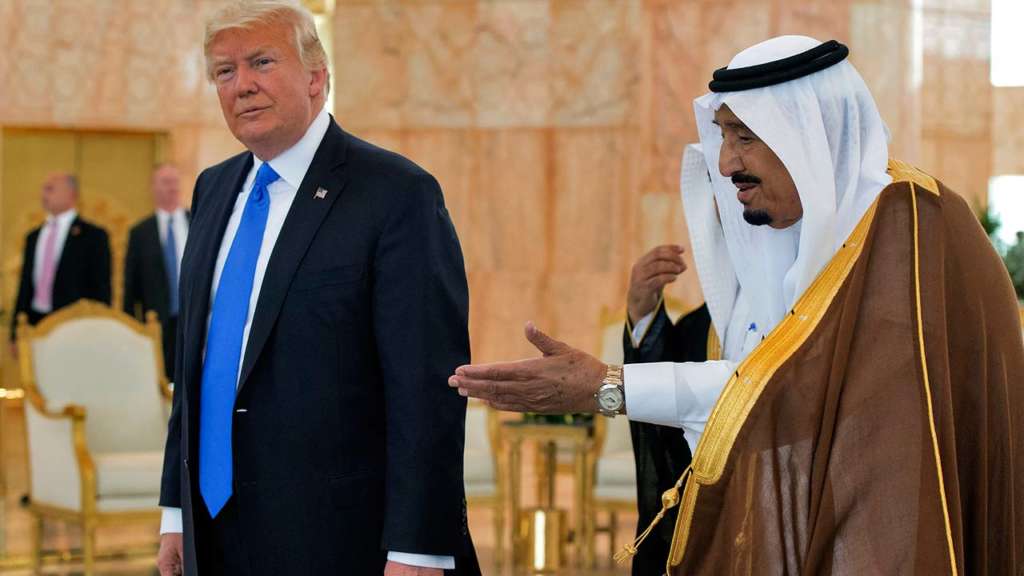Beirut – Arab and international newspapers and media Saturday shed light on US president Donald Trump’s visit to Saudi Arabia, in his first foreign visit since taking over his post.
The Guardian pointed out the symbolism of Trump’s dedicating his first foreign visit to Riyadh while BBC stated that foreign media focused on Saudi-US ties during Obama’s term that witnessed the signing of the well-known nuclear agreement with Iran, especially that Trump is a tough critic of the deal and the policy of easing sanctions on Iran.
The Independent newspaper said that this visit comes years after Obama’s term, although Obama was too soft on Iran and this led to cold relations between Washington and Riyadh.
Sunday’s Speech
Washington Post expected that Trump’s speech on Sunday will be the most prominent stance by him in Riyadh, in the presence of 50 Muslim states. “Trump campaigned against Muslims, but will preach tolerance in Saudi speech,” reported the newspaper.
Success of Deputy Crown Prince
Trump’s decision to stop in Saudi Arabia is a “huge success for Deputy Crown Prince Mohammed bin Salman,” reported CNBC.
“The deputy crown prince orchestrated, arranged and agreed to all of this during his latest visit to the White House in March,” Bernard Haykel, a professor at Princeton University, said to CNBC.
Arab Newspapers
Arab newspapers focused on the “historic” event and agreed on the importance and symbolism of this visit. Ahram – Egyptian newspaper – saw that the visit gains its importance from being Trump’s first visit since taking over his post and it aims to reinforce strategic relations on the regional and international arenas.
Dr. Walid Ayoubi told Lebanese newspaper Al Joumhouria that the “visit expresses the new approach of the US foreign policy.”
